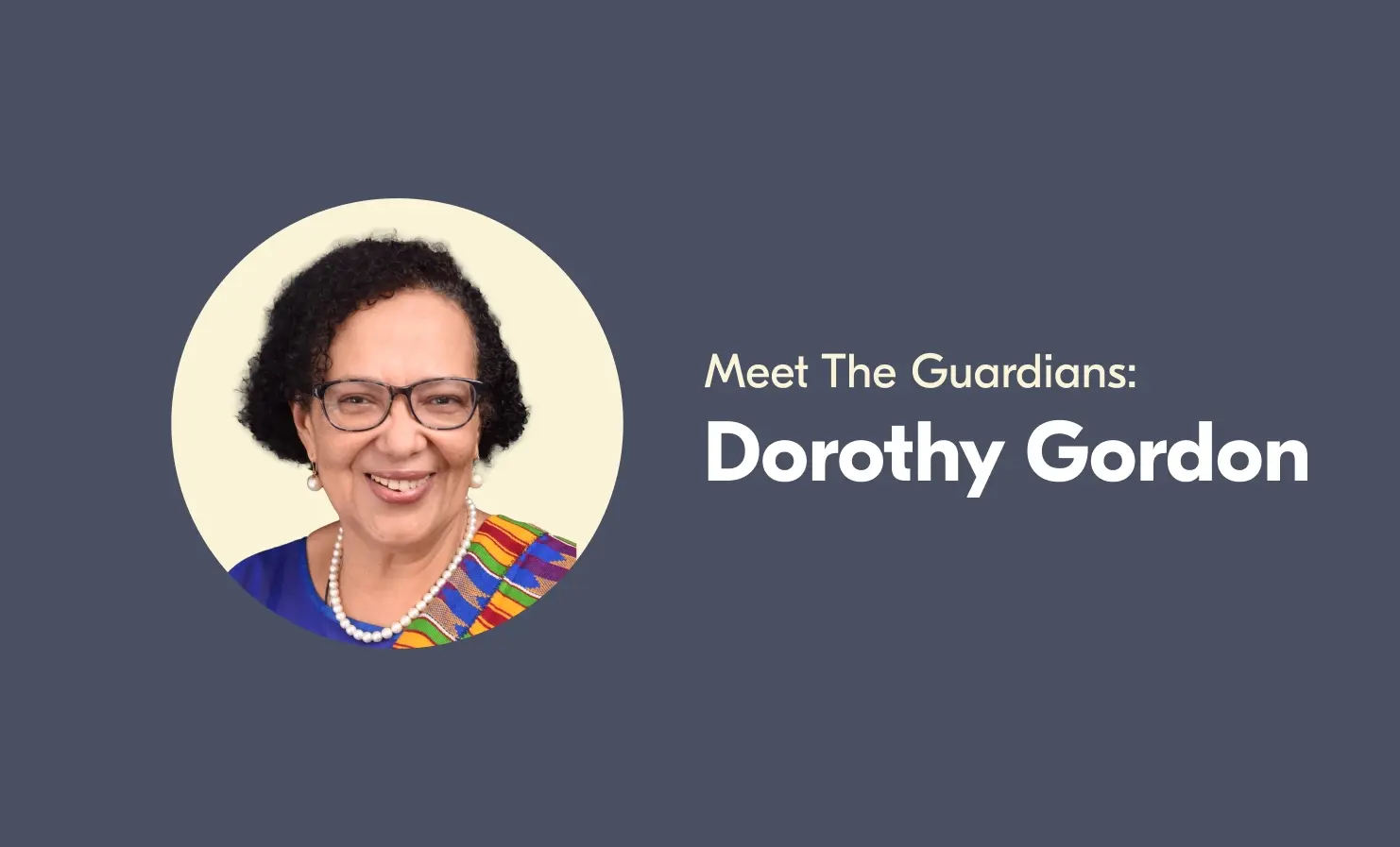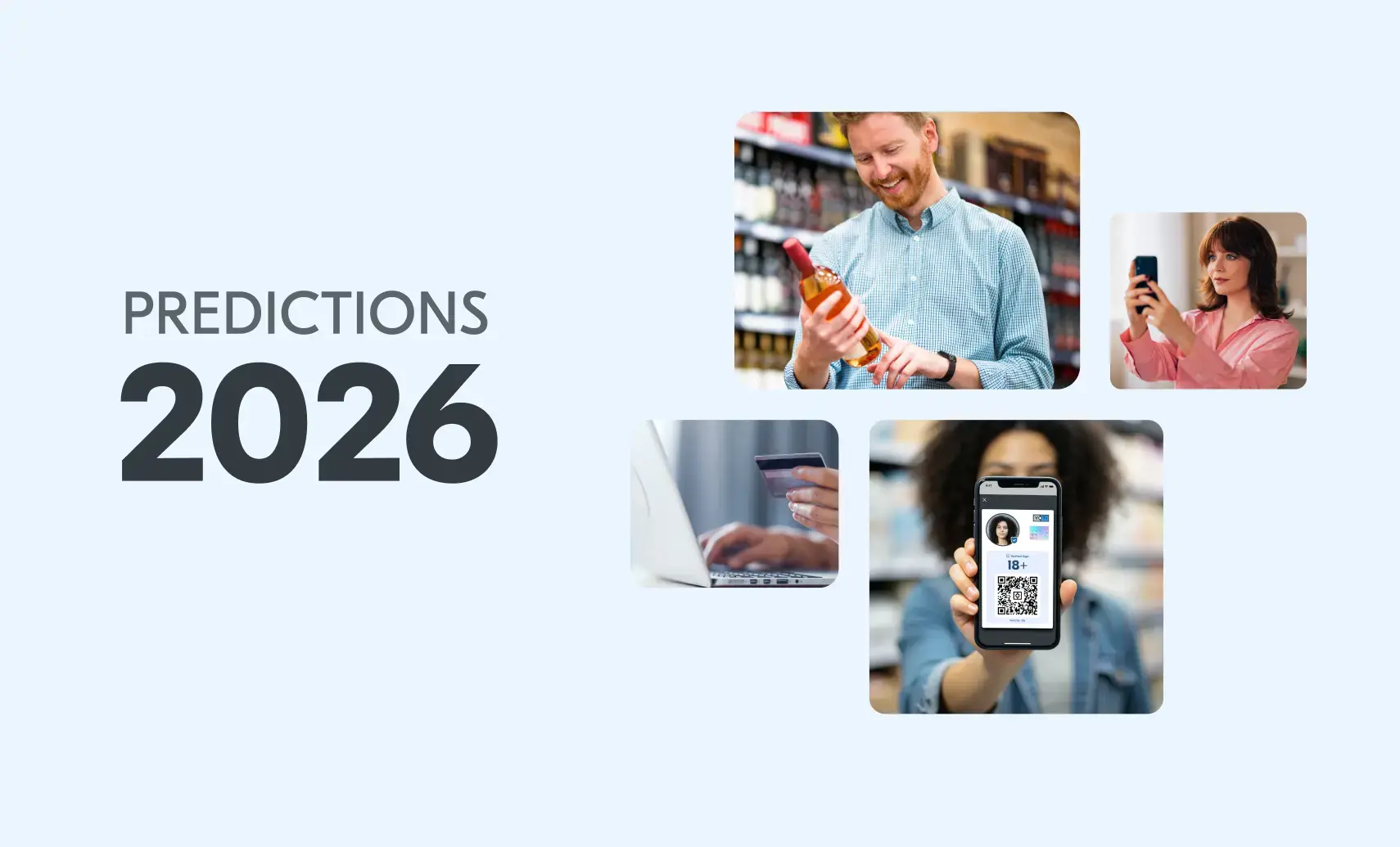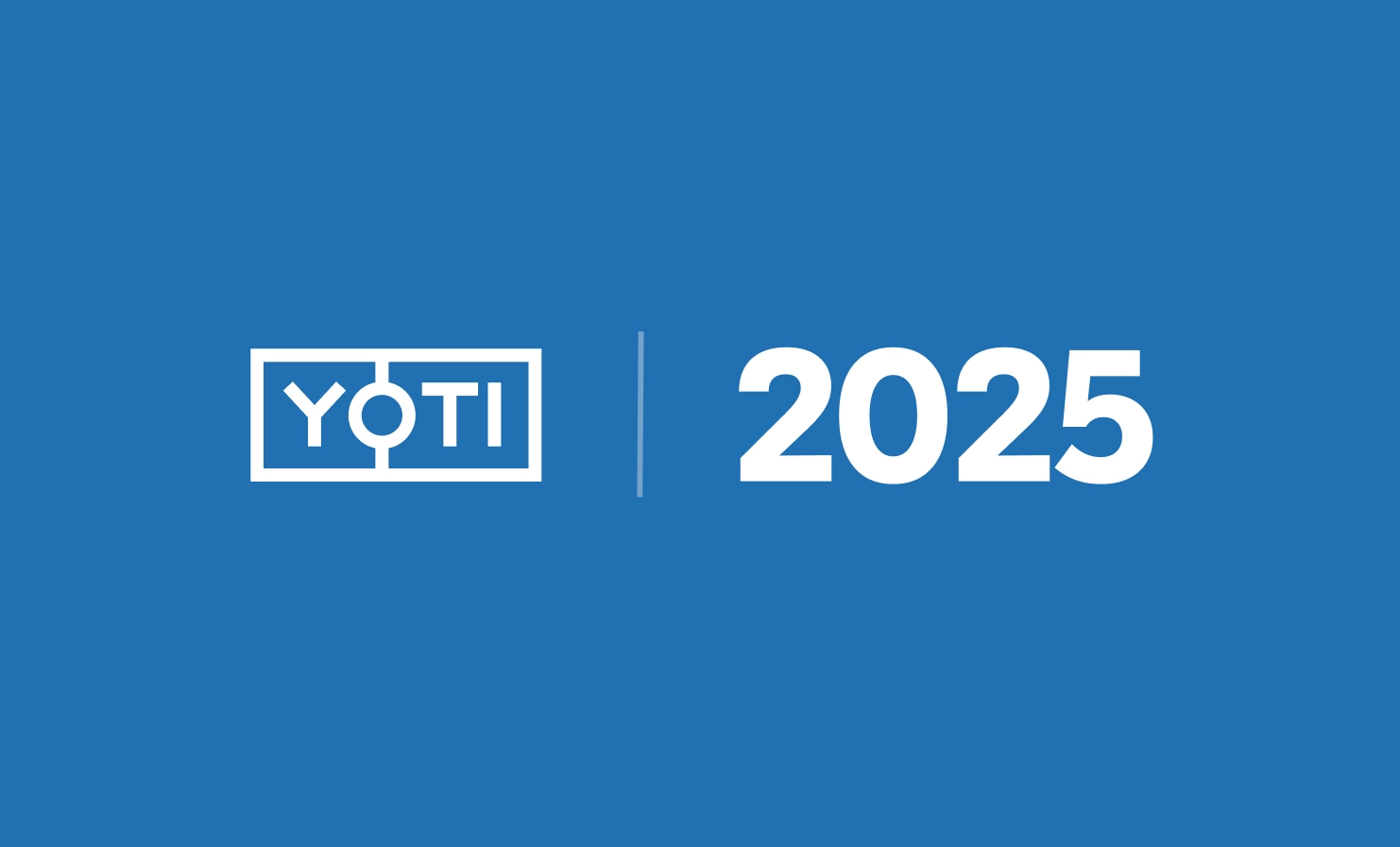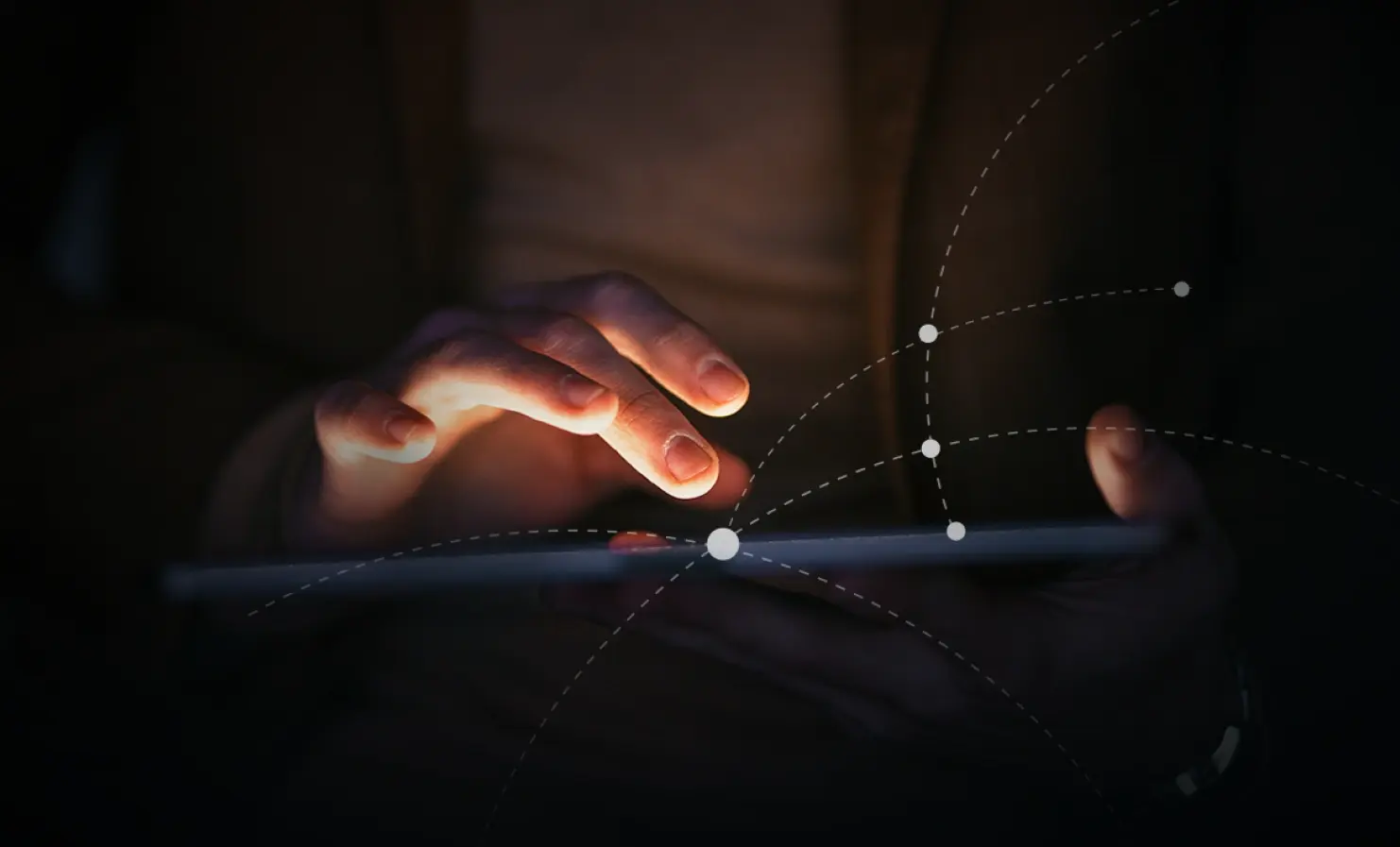
At Yoti, our Guardian Council is an independent board of advisors, helping us to navigate the complex world of identity.
We spoke with our newest Guardian, Dorothy Gordon, to find out what drew her to our Guardian Council.
1) Why did you decide to join Yoti’s Guardian Council?
I found the concept of a Guardian Council really engaging. It’s not often that companies attempt such a thing – inviting people from outside the company to help ensure they’re acting in a trustworthy and transparent way. There are many social enterprises out there that say that they’re doing something bigger than just making profit. Therefore, the idea of a company actually walking the talk and setting up a body to keep things ethically in line was, for me, very interesting.
I kept hearing about Yoti in relation to my work in the online safety sector and seeing Yoti’s posts on social media. At the start of this year, the Convenor of the Guardian Council contacted me to see if I’d like to get involved. After having a great conversation, I decided that the Guardian Council and my work aligned and agreed to join.
2) How do you define accountability and why do you believe it is important in our industry?
Now that’s a big question! One way that we can look at accountability is that someone, or something, can be held responsible for their actions. But this also means that the person, or thing, being held accountable is transparent about what it’s doing. If you’re hiding your actions, I can’t hold you accountable. Most companies would like to say that they’re an ethical business, but to know if this is the case, we need to know what the businesses are truly doing.
Today, given the sector that Yoti works in, this means that users need to be able to trust Yoti with their data. Anything Yoti does with that data needs to be available and understandable to the user. Users can hold Yoti to account, as they can check that Yoti is in line with what it says it’s going to do. Only then can a business build up trust. I see my role as a Guardian as someone who is safeguarding that trust.
At the same time, we have global agreements. The United Nations and its member states have ratified agreements such as the Universal Declaration of Human Rights, the Convention on the Rights of the Child (notably, General Comment 25) and the UN Sustainable Development Goals. As a collective, we’re all supposed to be working towards these goals.
3) How do you think your experiences will help you to make an impact as a Guardian?
My work focuses on trying to create a safe online environment for young people. When I talk about young people, this includes everyone up to tertiary education. I also do work in EdTech and with startups, looking at how they design their products, particularly in the age of AI.
The aim is for companies to design with safety in mind, from the outset. The approach of policing and fining companies doesn’t necessarily help young people, as at that stage, they could have already been negatively affected by harmful products.
We have an unsafe digital environment that we desperately need to make safer for everyone. I believe that we should systemically turn to ’safety by design’, so we can better avoid harmful outcomes. But this is a huge task! So in the interim period, at least when organisations restrict their products to users of a certain age, we need to be able to check how old that user is.
Many factors come into consideration when we talk about “age-appropriate design”. One of these is that children mature at different rates at any given age. So this doesn’t absolve the need for good parenting and people being aware of what their children are doing online. But Yoti is definitely one solution – and a robust one at that. I’ve been very impressed with the continuous efforts and energy that are being put into improving the product and figuring out the reasons behind any problems. It’s an iterative process – and a very good approach when designing. I also like that Yoti does consultations with various stakeholder groups to gather wider input.
Though I mainly work on digital policy issues at present, I’ve had a very eclectic career. I’ve worked with community organisations, larger NGOs, major consulting firms and the UN. I continue to work with them in an advisory manner by sitting on various councils and boards. This has helped me to see things from varied perspectives. Recently member states of the UN came out with some frameworks that are created to support a better online environment. These include the Global Digital Compact and the Declaration on Future Generations. These documents give us guidelines for the way forward, highlighting that we can’t continue doing business as usual.
4) How do you see the challenges of our digital environment changing over time?
Even though some say that the whole world could go online today, we know that almost half of the global population doesn’t do this regularly. In many cases, this is because they can’t connect, can’t afford the data, or the technology available to them has no direct significance to their lives. But we’re still seeing more and more young people who are the first to use the internet in their family. Often, this is without any support or guidance from the adults they live with, parents or guardians. The fact that kids know more about the online environment than adults is not exclusive to newly online communities. However, I have observed in some villages that there are maybe only one or two smartphones around which young people will gather. They’re often far away from their parents – wherever they can capture the data – and they’re busy watching whatever they can watch.
As more of these young people go online, they’ve no idea of the dangers of the environment. On top of this is an additional layer of unfamiliarity as what they’re seeing is from other regions around the world. They’re often unable to apply the same moral compass that they have for local things, to what they’re seeing online. So it really is important for me, given the global focus of my career and my familiarity with the contexts in Africa and South Asia, that we consider young people from all around the world when imagining the digital future we want. In the next decade, the bulk of the world’s population that will be newly going online is going to come from those two regions.
We need companies like Yoti to help us address our current concerns regarding equity, inclusion and participation as well as protection. And I hope to be able to play a meaningful role in shaping a child rights-based response, to best protect our future generations.
About Dorothy Gordon
Dorothy Gordon works in an advisory and consulting capacity on issues relating to ethical, open and rights-based participatory approaches to the use of digital technologies. Leveraging government, corporate, civil society and UN policy experience, her work as a leader, advocate, advisor, speaker and management consultant has taken her to over 100 countries. A gender advocate and Panafricanist, her current focus is online safety, particularly for youth in the global majority. She is a member of a number of advisory panels and boards including UNESCO International Institute for Technologies in Education (IITE), Linux Professional Institute, Creative Commons and 5Rights Foundation.



